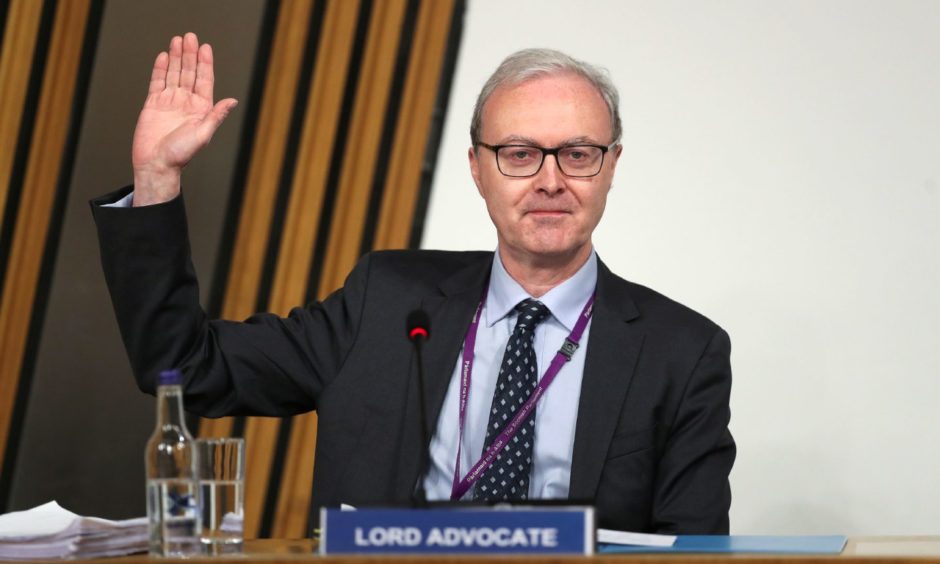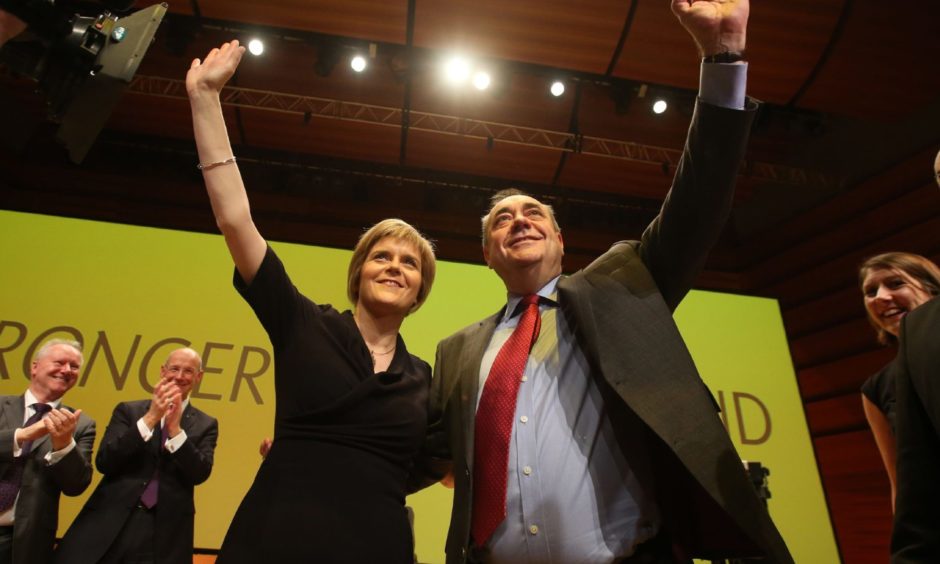The role of the Lord Advocate should be broken up as part of sweeping changes needed to restore the principles of accountability and transparency in the wake of the Alex Salmond affair, Anas Sarwar says.
In an exclusive interview with The Courier’s editor, David Clegg, the Scottish Labour leader said democracy in Scotland had been “shaken” by controversy over a probe into the Scottish Government’s handling of complaints against Mr Salmond.
A Holyrood committee found women who complained about sexual harassment were badly let down by “serious flaws” and “catastrophic” decisions by the Scottish Government but concerns have also been raised about the inquiry process.
Nicola Sturgeon was cleared of breaching the ministerial code following an independent review but was accused by the cross-party committee of having “misled” the inquiry over her meetings with Mr Salmond to discuss the complaints.
The committee also looked at the dual role of the Lord Advocate as legal adviser to the Scottish Government and head of the Crown Office and Procurator Fiscal Service.
It found there was a “long-standing tension” in the Lord Advocate’s dual roles and called for “reassurance that the existing arrangements continue to command confidence in the independent exercise of these two important roles”.
Mr Sarwar described the inquiry process as “frustrating” and warned there had been a “real shaking of the institution of the Parliament about the committee process, which the Scottish Government has got serious questions to answer for and are unforgivable”.
The Scottish Labour boss is calling for sweeping changes to be introduced in the next parliament, including strengthening the powers of committees and introducing a mechanism to recall parliamentarians who break the rules.
He also believes there is now an “unshakeable” argument for breaking up the powers of the Lord Advocate so they no longer serve as both the chief legal adviser to Scottish Government ministers and chief prosecutor.
“We need to strengthen the committee process,” Mr Sarwar said. “The way we do that is to give committees the ability to compel witnesses to come and give evidence.
“I think we should look at elected committee conveners so we can try and get some greater independence of the committee convenorship, and committees in the round.
“I think there’s a real question about the role of the Lord Advocate and I think there is now an unshakeable case that we should separate the role of who is the chief legal adviser to the government from the chief prosecutor.
“It fundamentally has to be addressed in the next parliament. I think there are issues around recall of parliamentarians as well, if they are found to be in breach and the public believe there should be a recall.
“I think we’ve got to bring that spirit of transparency back into our parliament as well. Democracy has been shaken, the principles of accountability and transparency have been shaken, and they need to be urgently restored.”
The decision to censor part of Mr Salmond’s submission to the inquiry caused a political row and led to some questioning the independence of the judiciary.
The former first minister called for the current Lord Advocate, James Wolffe, to step down but last month Mr Wolffe said claims he or anyone else in the Crown Office had intervened were “baseless” and “without foundation”.
He said it was the decision of Scottish Parliamentary authorities to redact portions of evidence submitted by Mr Salmond – and claimed they were right to do so because it helped protect the anonymity of the complainers.
Speaking during the interview, Mr Sarwar also revealed his concern that the situation between Mr Salmond and his successor as first minister, Nicola Sturgeon, could see the next Scottish Parliament turned into a “circus”.
The Scottish Labour leader believes Mr Salmond’s new Alba Party was established to get “revenge” against Ms Sturgeon.
“I think there was a risk in the early part of the campaign for the SNP infighting and the SNP psychodrama – and I think there is still a risk of this – turning the election into a circus and the next parliament into a circus as well,” Mr Sarwar said.
“I think some of that has dissipated from the early part of the campaign when they first launched. I understand what they’re saying. They’re talking about supermajorities, they’re talking about referendums. To be honest, I don’t believe that’s the motivation.
“The motivation is not a referendum, the motivation is not about politics, the motivation is revenge. And if they want to carry on that kind of frame, they should be doing it outside of this pandemic election.
“I think there are too many serious issues for this election to be dominated by those egos or those personalities, or the settling of scores.”

